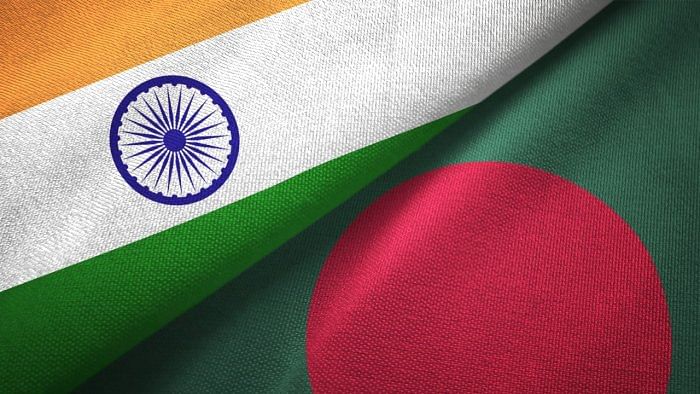
India has extended its support to Bangladesh Prime Minister Sheikh Hasina even as the United States stepped up pressure on her government and expressed concerns over the alleged erosion of democracy in the tiny South Asian nation.
Foreign Secretary Vinay Mohan Kwatra was on a visit to Dhaka on Tuesday and Wednesday. He called on Sheikh Hasina and her foreign minister, A K Abdul Momen, on Wednesday, apart from joining his counterpart Masud bin Momen for wide-ranging discussions covering all aspects of the India-Bangladesh relationship.
Kwatra purportedly told Hasina that New Delhi had total support to her and her leadership, according to a report by the United News Bangladesh.
The report by the UNB quoted Hasina’s close aide Mohammed Nazrul Islam, who briefed journalists after India’s top diplomat called on the Prime Minister of Bangladesh.
Kwatra conveyed to Hasina “warm wishes” from Prime Minister Narendra Modi. He reiterated New Delhi’s support for “wider and deeper development and economic partnership” between India and Bangladesh. He noted that Bangladesh was the pivot of India’s ‘Neighbourhood First Policy’ and a key partner of its ‘Act East Policy’.
New Delhi sent its top diplomat to Dhaka at a time when a delegation of the United States was also on a visit to Bangladesh. “
Derek Chollet, the counsellor of the US State Department, led the delegation from Washington DC. He also called on Hasina and Momen. “The United States' strongest partnerships in the world are with strong democracies. And, to the extent democracy is weakening anywhere, it's going to be a limiting factor in our ability to cooperate,” the Daily Star newspaper of Bangladesh quoted Chollet as saying during an interaction with journalists in Dhaka.
Hasina’s first tenure as prime minister of Bangladesh ended in 2001. She, however, led her Awami League party to return to power in 2009. She cracked down on the radicals and brought to justice the Islamists, who had helped the Pakistan Army carrying out the genocide in 1971. Secularism was restored as state principle, although Islam remained as state religion in the Constitution of Bangladesh. She led Bangladesh to register an annual economic growth of 8.4% just before the Covid-19 crisis hit the world. She put the poor nation of 16.3 million people on track to graduating from a Least Developed Country to a Developing Country by 2026. She decimated her political opponents like the Jamaat-e-Islami and her arch rival Khaleda Zia’s Bangladesh National Party and consolidated her position politically, leading the Awami League to cakewalk victories in January 2014 and December 2018 parliamentary polls too.
But even as she is preparing to seek a mandate for her fifth term in the office of the prime minister, her political rivals are accusing her and her party of rigging past elections, using state machinery to intimidate opposition and of undermining democracy. The US too expressed concerns over previous elections, treatment of certain advocates in civil society, particularly in human rights.
Chollet on Wednesday subtly nudged Hasina and Hasina’s AL government to ensure free and fair elections in Bangladesh.
New Delhi, however, refrained from publicly interfering into internal politics of Bangladesh.
The foreign secretary and his counterpart agreed to further strengthen ongoing bilateral cooperation, in diverse areas, including the concessional Lines of Credit India extended to Bangladesh, trade and investment, connectivity, power and energy, defence and security, and people-to-people ties. They also agreed to enhance their cooperation and consultations on regional and international issues of shared interest.
“India looks forward to active participation of Bangladesh as the Guest Country at various events during India’s presidency of G-20. Both sides also agreed to extend reciprocal support to each other's upcoming candidature for Non-Permanent membership of the UN Security Council, “ the Ministry of External Affairs stated in New Delhi.
